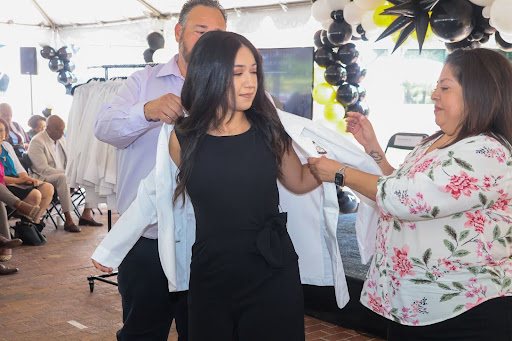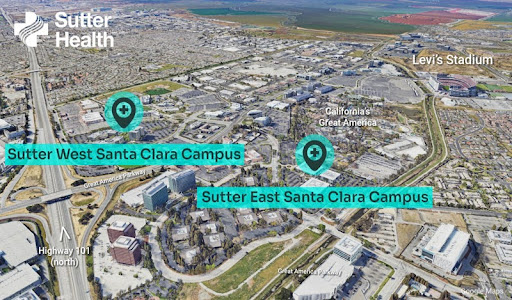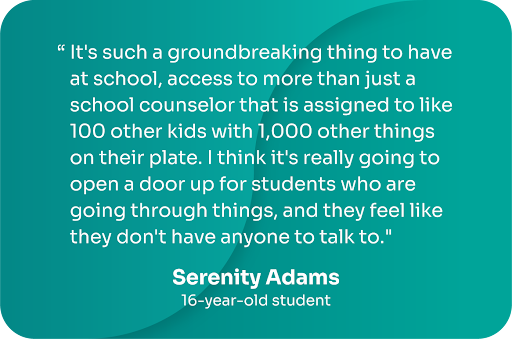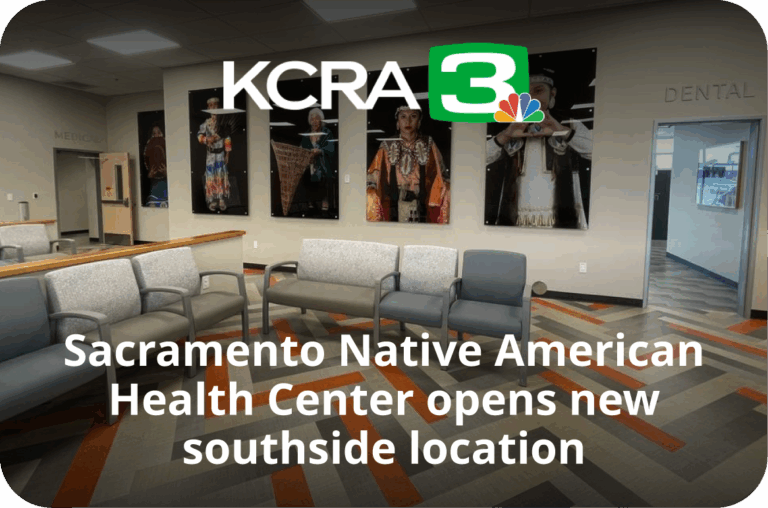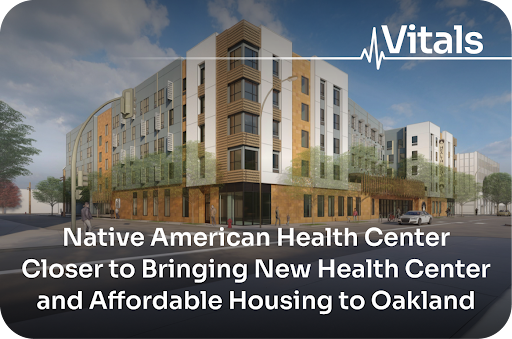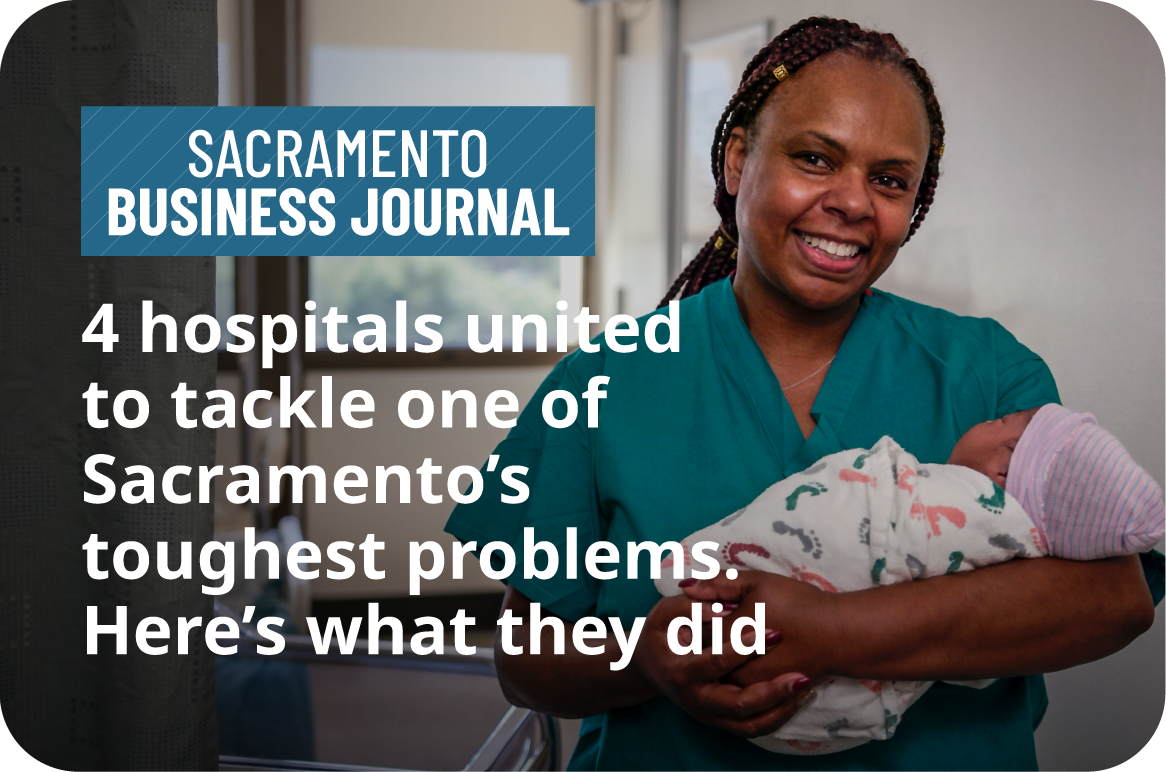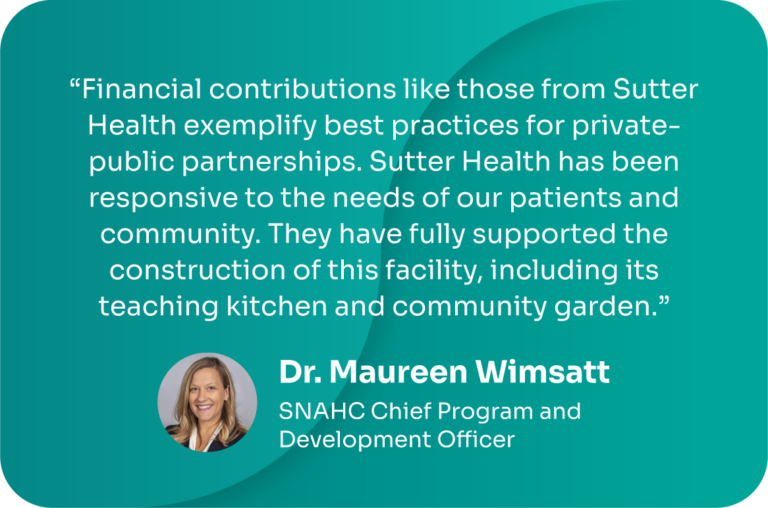Closing Healthcare Gaps
At the heart of Sutter Health’s not-for-profit mission is a commitment and responsibility to expand access to care and improve the health and wellbeing of our communities. This means going beyond the walls of our care centers to reach those who often face barriers to clinical and behavioral healthcare and other necessary services.
Through partnerships, sponsorships and community benefit investments, Sutter Health works to close healthcare gaps by supporting organizations that provide essential health and social services in the communities we serve to help more people live healthy lives.
These investments and the innovative solutions and critical safety net services they fund are more important than ever.
Our community investments focus on three priority areas:
- Workforce development
- Access to mental healthcare services and substance use treatment
- Access to healthcare services, including chronic disease prevention and management
Program gives high school students pathway to health careers
Sutter’s NextGen Scholars program provides education opportunities and career pathways in healthcare for high school students, with the goal of training 5,000 students by 2030.
The program began with Los Rios Community College District where students attend classes to work toward a community college certificate in their field of interest and gain work experience at Sutter Health care facilities. It is expanding to other districts across Northern California and the Central Coast.

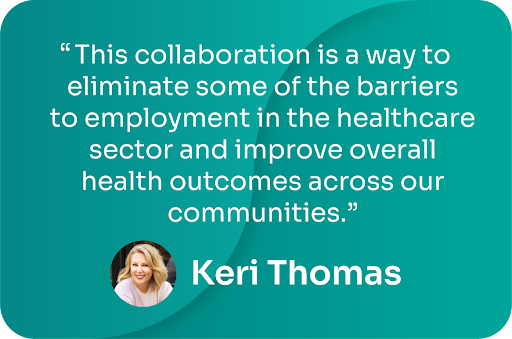

Sutter partners with community clinic to tackle OB-GYN physician shortage
Through a newly accredited OB-GYN physician residency program residents will train at Sutter Roseville Medical Center and at clinics operated by WellSpace Health, a nonprofit FQHC serving low-income patients in Placer County, where for years only one doctor performed the majority of deliveries for Medi-Cal patients. Training more of these specialists will help improve access to women’s healthcare in many communities.
- 50%+ of babies born in California are covered by Medi-Cal, highlighting the need for more accessible OB-GYN services
- The first cohort of residents will begin training in July 2026
Training tomorrow’s physicians and other healthcare professionals
Sutter has a broad strategy to expand medical education and help address healthcare access challenges for patients across Northern California. Part of this work includes collaborating with academic partners like UCSF, Stanford University, UC Davis, Dartmouth College, Western University, California Northstate University, Touro University California, California Health Sciences University and San Francisco State University to grow academic programs.
One example of such a partnership is Sutter’s collaboration with Los Angeles-based Charles R. Drew University, one of only four Historically Black Medical Schools in the country. Sutter is funding 50 full-tuition scholarships from 2024-2028 for medical students and providing clinical rotations and research electives at Sutter medical centers.
Sutter is also collaborating with West Valley-Mission Community College in Santa Clara to accelerate healthcare workforce training in that region by developing a 70,000-square-foot STEM Center to provide students with hands-on training in advanced technologies, and create a seamless pipeline for internships, specialized training, and career readiness.
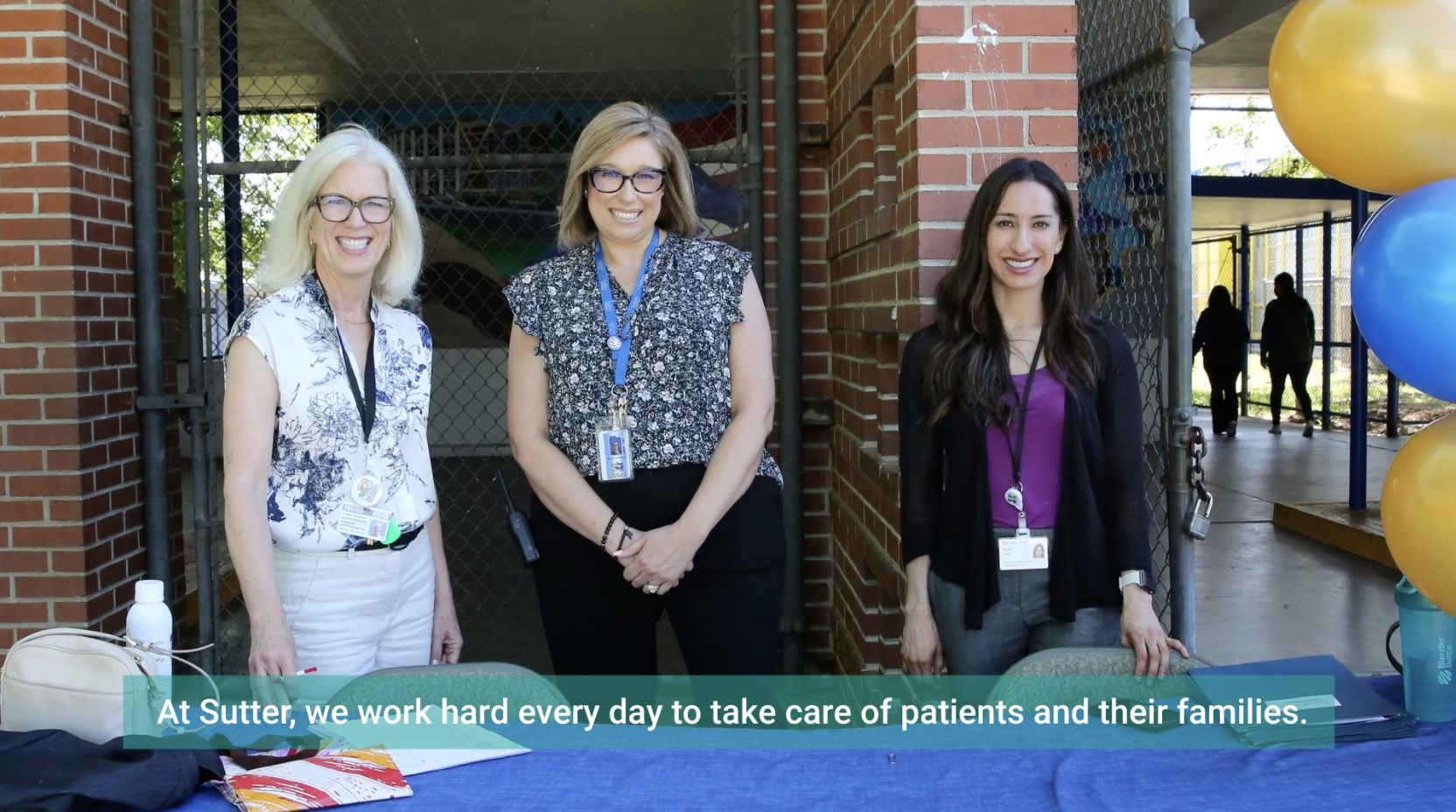
On campus clinic delivers much needed care and support to teens
Sutter Health invested a total of $1.6 million to open and support a health center on the Grant Union High School campus that offers mental health counseling, medical check-ups, health education and more.
It was made possible through a partnership with Twin Rivers School District, Neighborhood Wellness Foundation, and Sacramento Native American Health Clinic.
In 2024, the clinic:
- Served 1,294 youth
- Provided 198 primary health care appointments
- Conducted 872 behavioral health appointments
- Conducted 198 health assessments/screenings
Strengthening community healthcare safety nets
Over the past five years, Sutter has invested nearly $50 million to support more than two dozen Federally Qualified Health Clinics, serving almost 1 million patients. Partnerships with FQHCs expand the availability of accessible, affordable primary care in under-resourced communities.

